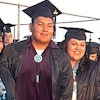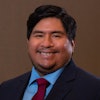In the aftermath of a highly publicized and bitter vote that removed 2,700 Blacks known as Freedmen from the tribal rolls of the Cherokee Nation of Oklahoma, scholars are weighing in about a question that is as old as this country — What does it mean to be an American Indian?
Last week, Cherokee members voted to remove a unique class of its citizens from the tribal rolls — the descendants of African slaves once kept by tribal members, also known as Freedmen. Freedmen were granted citizenship as part of an 1866 treaty between the federal government and the Cherokee nation. The freed slaves that stayed with the tribe adopted the language and culture. Some intermarried into the tribe, and many were forced on the deadly Trail of Tears march from Georgia to Oklahoma, which killed nearly one-fifth of the tribe. Historically one of the wealthiest tribes, some Cherokee members held more than 100 slaves on plantations in the South, according to a recent report on National Public Radio.
But in the mid-1970s, after decades of oppressive rule by the Bureau of Indian Affairs, the Cherokee re-organized as a tribal nation — choosing their own leaders and allowing citizens the right to vote. Under a new constitution, members first voted to oust intermarried Whites, then the Freedmen on the basis that they had no blood connection to the tribe.
After enduring almost 30 years of banishment, the Cherokee high court ruled that the Freedmen could re-enroll. But a petition drive led to a constitutional amendment that some say narrowly required citizenship to be defined purely by blood. More importantly, the petition took the determining of rightful enrollment out of the hands of the court and gave it to the people to decide. Many have expressed concern that the decision to remove the Freedmen was not based on a thorough understanding of the tribe’s political and legal history, but motivated by racism and a perception that Freedmen simply want access to membership benefits such as health care.
“It’s like the O.J. Simpson trial. Once the debate became about race nobody got a fair hearing,” says Dr. Daniel F. Littlefield Jr., director of the Sequoyah Research Center at the University of Arkansas-Little Rock. “This decision should have been based on the 1866 Treaty in which the Freedmen were granted citizenship, not race.”
Littlefield, who has gathered a history of the Cherokee Freedmen in a book, says the Cherokee are dismissing an important tribal value — the culture of inclusion. In fact, the Cherokee have been one of the few tribes that have adopted other American Indians into their ranks. According to Littlefield, defining what it means to be Cherokee has meant both blood and culture. But when the tribe re-organized in 1976, they allowed White attitudes of racism into their “rethinking” about who is a Cherokee.
“Acculturation conditions people to think in certain ways,” Littlefield says. “The Indians of Oklahoma were almost forced to do that.”




















